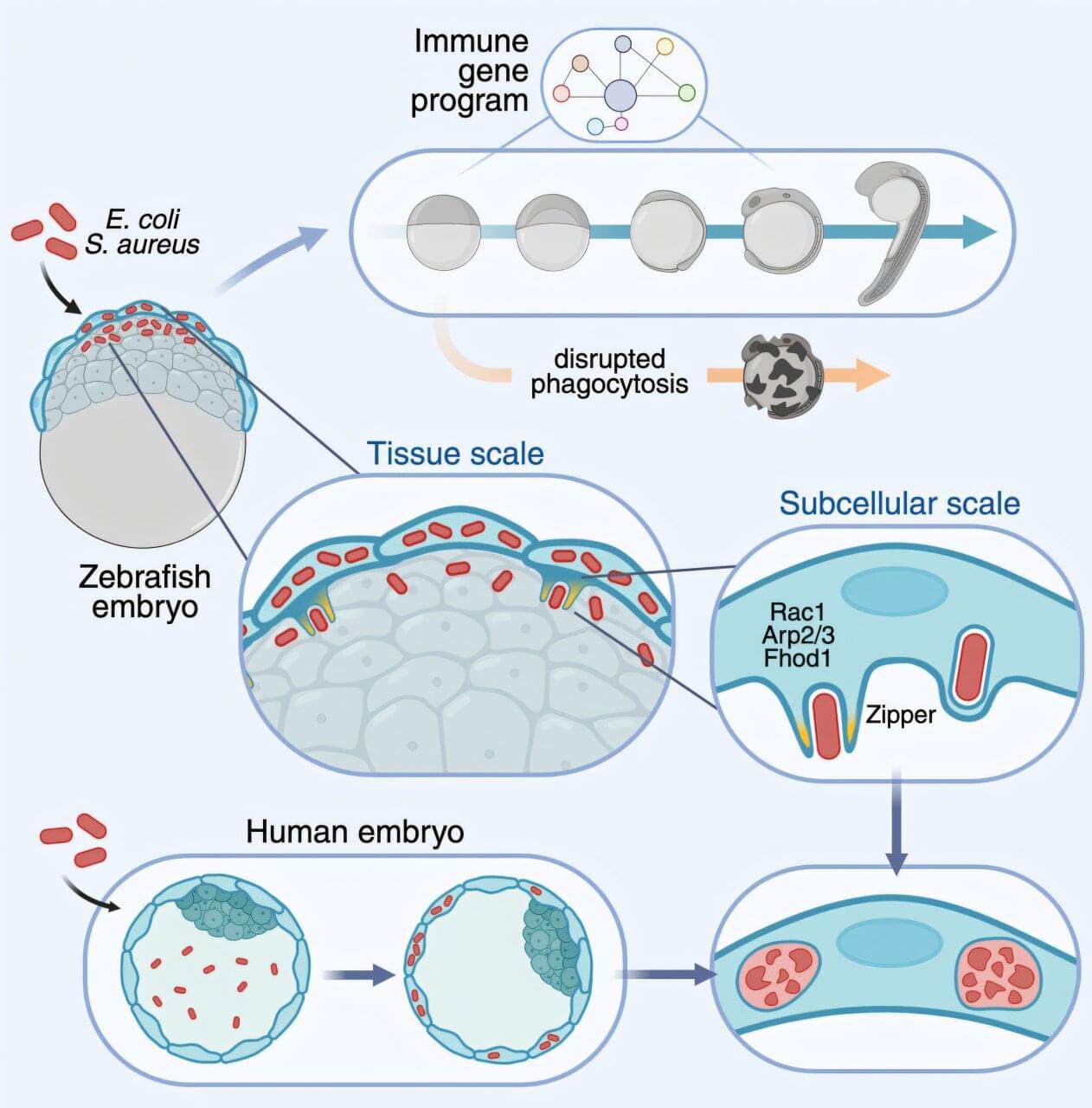Research led by scientists from the Institute of Molecular Biology of Barcelona (IBMB) of the CSIC and the Bellvitge Biomedical Research Institute (IDIBELL) has managed to film how a few days-old embryos defend themselves from a potential infection by bacteria. The work is published this week in the journal Cell Host and Microbe.
Specifically, they have been able to see how zebrafish embryos use cells present on their surface, known as epithelial cells, to ingest and destroy bacteria through a process called phagocytosis, similar to that carried out by white blood cells. Crucially, scientists could observe that this ability to eliminate bacteria is also present in human embryos.
Using state-of-the-art microscopy techniques, the research shows how cells capture Escherichia coli and Staphylococcus aureus bacteria through small protrusions of their membrane, in which the protein Actin is involved. “Our research shows that, at the beginning of development—before implantation in the uterus and before the formation of organs—embryos already have a defense system that allows them to eliminate bacterial infections,” says Esteban Hoijman, researcher at IBMB-CSIC and IDIBELL, leader of the research.
